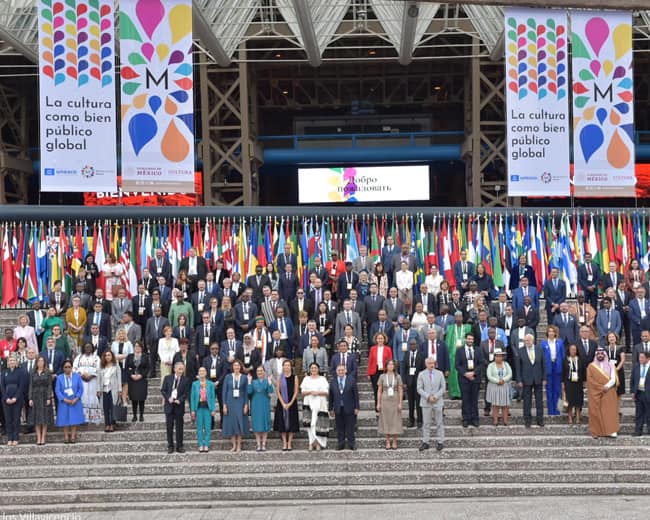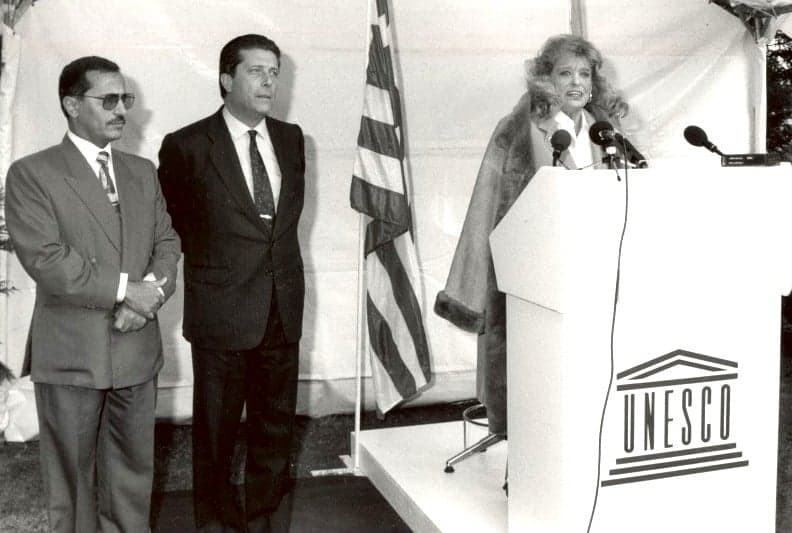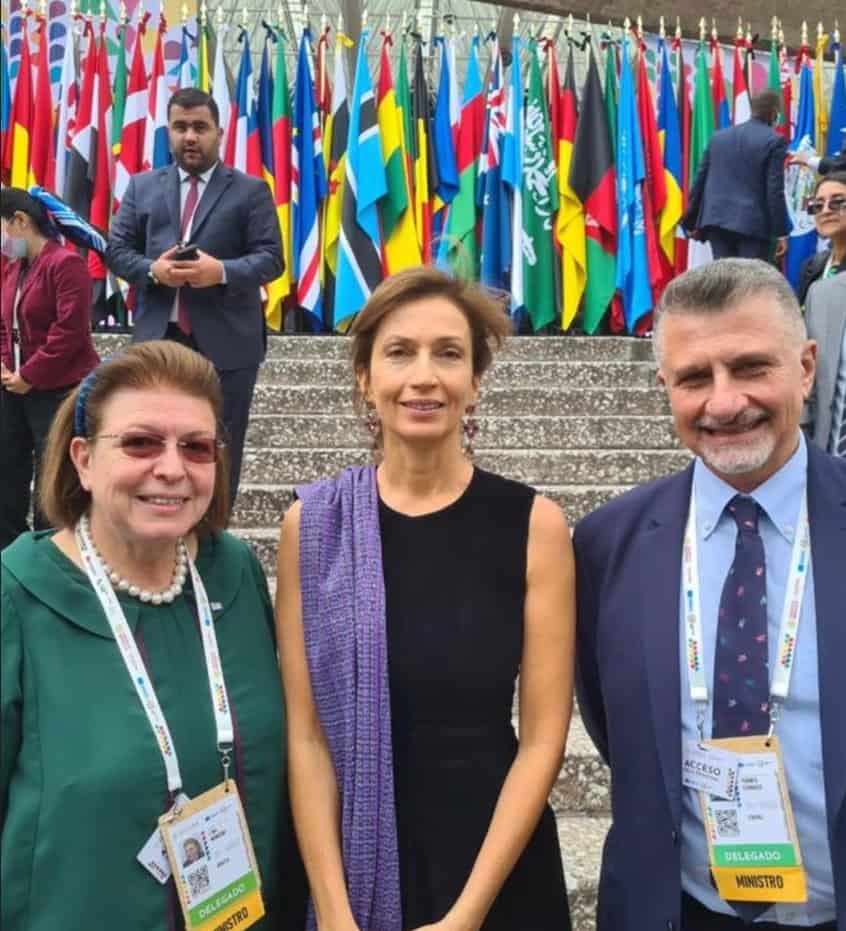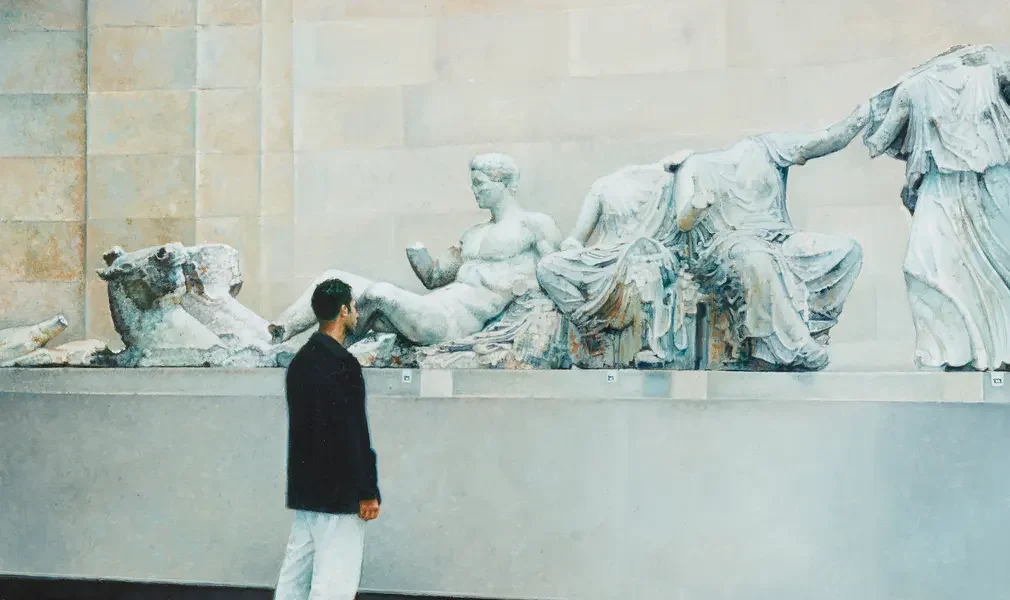The issue of the return of the Parthenon Sculptures has again been raised by the Greek Minister of Culture and Sport, Dr Lina Mendoni, during the UNESCO World Congress on Cultural Policies and Sustainable Development (Mondiacult 2022) which was held in Mexico from September 28-30, 2022.

Dr Mendoni reminded delegates that forty years earlier, at the inaugural Mondiacult conference held in 1982 in Mexico City, the legendary Melina Mercouri told the forum that Greece was seeking the return of the Parthenon Sculptures to Athens, passionately declaring:
“The day may come when this world will create other visions, other concepts of what is proper, of what comprises a cultural patrimony and of human creativity. And we well understand that the museums cannot be emptied. But I insist on reminding you that in the case of the Acropolis marbles we are not asking for the return of a painting or a statue. We are asking for the return of a portion of a unique monument, the privileged symbol of a whole culture.”

Dr Mendoni, reflecting the feisty spirit of her famous predecessor, reiterated that the return of the Sculptures is not just a matter of ethics and justice but an issue that affects and goes to the very core of the principles on which UNESCO is based.
The Culture Minister stressed that dialogue between nations presupposes dialogue between cultures, which in turn presupposes respect for the history, heritage and identity of each nation. A constructive and genuine cultural dialogue with the British Museum and the UK government over the Parthenon Sculptures is therefore essential.

Dr Mendoni in her presentation to the UNESCO conference emphasised the overarching need to restore the integrity of the Parthenon:
"The Parthenon, the monument-symbol of UNESCO, is the most emblematic case of a monument, registered on the World Heritage List, the unity and integrity of which cannot remain fragmented and disturbed until this day. The preservation the authenticity, unity and integrity of cultural heritage implies its defence against theft, looting, vandalism and illegal trade, not only in times of peace but and in those of armed conflicts.”
She concluded by urging that "coordinated international action" is necessary with the aim of returning cultural goods to their rightful owners and to their places of origin, particularly in the case of monuments of outstanding importance.
During the conference the Greek Culture Minister had a fruitful working meeting with the Director General of UNESCO, Audrey Azoulay, discussing various issues and initiatives developed by Greece within the UNESCO framework. The Director General thanked Greece for the excellent level of cooperation it has developed over recent years with all UNESCO bodies.

Special mention was made of the international conference which is being organised by the Ministry of Culture and Sports, in collaboration with the UNESCO Cultural Heritage Centre, to celebrate the 50th anniversary of the adoption of the World Cultural Heritage Convention in Delphi on 17-18 November 2022, entitled: The Next 50 - The future of World Heritage in challenging times enhancing resilience and sustainability. The conference will focus on climate change and sustainable tourism.
Dr Mendoni also had a very productive meeting with the President of the UNESCO Executive Board, Tamara Rastovac Siamashvili, to discuss initiatives and projects for the protection of cultural heritage, both tangible and intangible, from climate change, especially in archaeological sites included on the World Cultural Heritage List, such as Delphi, Mystras, Philippi, and Ancient Olympia. They also conferred on Greece's strong positions on the protection of cultural property from illegal trafficking.
Lina Mendoni also met with her Argentinian counterpart, Tristan Bauer, and discussed the thriving Greek community in Argentina as well as noting the joint presence of Greece and Argentina in the UNESCO World Heritage Committee and the countries ‘ongoing efforts to restrict the illegal trade in antiquities and other cultural property. The two Ministers agreed to sign a memorandum of cooperation, not only to combat the illegal trade in antiquities, but also to work towards bilateral exchanges in the field of music, the arts and cinema. An exhibition of artefacts from Greece, Peru, Chile and Argentina - countries with rich ancient cultures - is already being prepared at the National Library of Buenos Aires.

Significantly, the Argentine Culture Minister, who is also a well-known filmmaker and screenwriter, reaffirmed his country's absolute support for Greece's request for the return and reunification of the Parthenon Sculptures in Athens, declaring that the sculptures taken by Lord Elgin stolen and their continuing presence in the British Museum violates the ethical principles that countries must demonstrate.

At the conclusion of the conference, the member States of UNESCO issued a Declaration of Culture recognising culture as a "global public good" and a specific sustainable development objective in its own right. The declaration calls for an open and inclusive international dialogue for the return and restitution of cultural property, including illegally exported property, to countries of origin as an ethical imperative to foster the right of peoples and communities to the enjoyment of their cultural heritage, and in light of the increasing claims from the countries concerned, with a view to strengthen social cohesion and intergenerational transmission of cultural heritage.
The declaration also encourages UNESCO to promote the effective implementation of existing legal frameworks or policies for the return of cultural property to its countries of origin through proactive mediation by the UNESCO Intergovernmental Committee for Promoting the Return of Cultural Property, a forum at which Greece has had significant success in 2021 and again earlier this year in highlighting the recalcitrant position of the UK authorities in dealing with the request for the return of the Parthenon Sculptures.
Greece continues to agitate for the reunification of the Parthenon Sculptures at important international conferences and gatherings. It is an issue that will not go away until a satisfactory resolution is finally reached in what is arguably the world's most famous case of illicit appropriation of cultural treasures that are keys to a nation's history and identity and the very essence of a global public good.
George Vardas is the Arts and Culture Editor and also a founding member of the Acropolis Research Group

